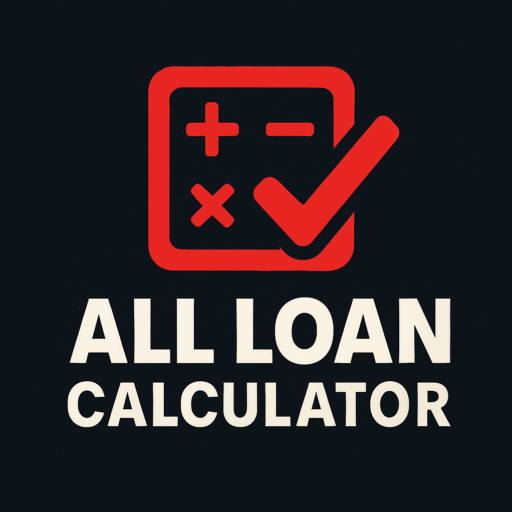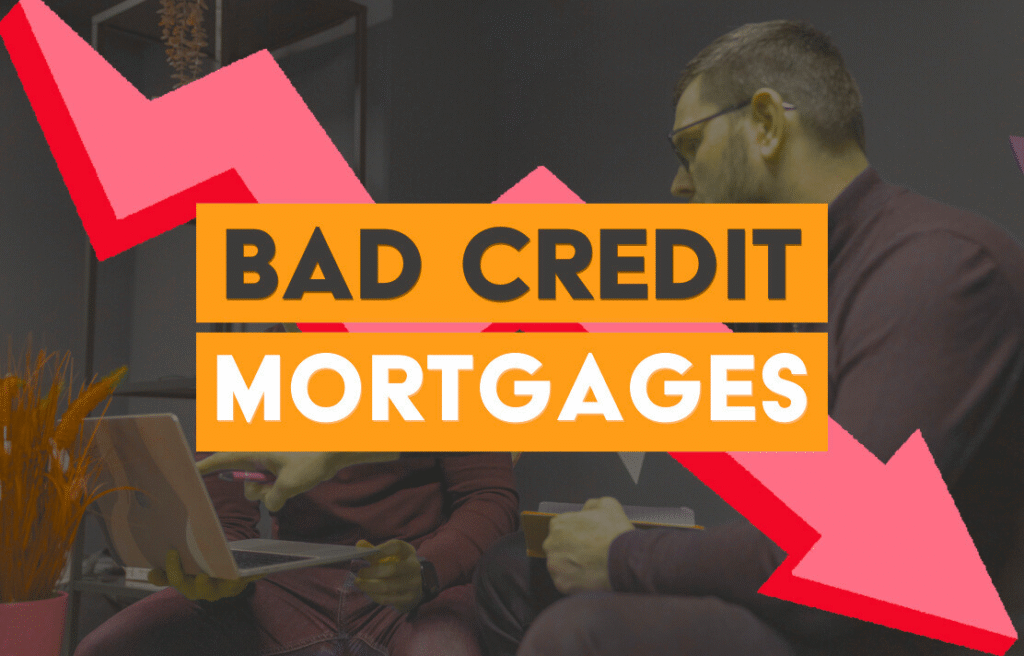Bad Credit Mortgages: A Complete Guide for 2025
Getting a mortgage is often seen as one of the biggest milestones in life.But what happens if your credit record has a few blemishes? Many people assume that having poor credit completely rules out the possibility of buying a home.
The truth is, it doesn’t. Bad credit mortgages existand while they work differently from traditional home loans, they can still help you secure the property you want. This guide explores everything you need to know about bad credit mortgages, from how they work to tips for improving your chances of approval.
What Is a Bad Credit Mortgage?
A bad credit mortgage is a type of home loan specifically designed for borrowers with low credit scores or poor financial history. Lenders use credit scores to assess riskand a lower score signals higher risk. Instead of rejecting these applications outright, some lenders offer specialized mortgage products with adjusted terms.
These mortgages may come with higher interest rates, stricter eligibility requirementsor larger deposit demands. However, they give people with financial setbacks such as late payments, defaultsor bankruptcy an opportunity to own property.
Who Needs a Bad Credit Mortgage?
Not everyone with a less-than-perfect score will require a specialist loan. But certain financial histories often make lenders cautious. You might need a bad credit mortgage if:
- You’ve had CCJs (County Court Judgments)
- You’ve been declared bankrupt in the past
- You’ve entered into an IVA (Individual Voluntary Arrangement)
- You’ve faced repossessions
- You’ve had multiple missed payments on credit cards or loans
Even those with thin credit files meaning little to no credit history may benefit from such products, since lenders see the lack of data as uncertainty.
How Do Bad Credit Mortgages Work?
Bad credit mortgages function in the same basic way as standard mortgages: you borrow money to purchase a property and repay it in installments with interest. The difference lies in the terms:
- Interest Rates: Higher than conventional loans to compensate for the perceived risk.
- Deposit Requirements: Many lenders ask for a larger deposit (often 15%–30%) compared to the 5%–10% for prime borrowers.
- Limited Lender Options: Fewer banks and building societies offer them, making the market more niche.
- Stricter Affordability Checks: Lenders carefully assess income, spending habitsand existing debts
Benefits of Bad Credit Mortgages
Despite their challenges, these mortgages come with unique advantages:
- Access to Homeownership: Even with poor credit, you can still buy a home.
- Credit Building Opportunity: Making consistent payments helps rebuild your credit history.
- Flexible Criteria: Specialist lenders often consider your full financial story, not just your score.
- Range of Options: From fixed-rate to variable-rate products, choices still exist.
Risks and Drawbacks
Before committing, weigh the downsides carefully:
- Higher Costs: Interest rates and fees can be significantly more expensive.
- Lower Loan-to-Value Ratios: You will often need a much bigger deposit.
- Limited Lenders: Less competition means fewer deals to choose from.
- Financial Pressure: Missing payments on a bad credit mortgage can worsen your situation.
Factors That Affect Eligibility
When applying for a bad credit mortgage, lenders consider multiple elements:
1. Credit Score
While the score is not everything, it does provide a baseline. A higher score even within the “bad” category may unlock better deals.
2. Deposit Size
The larger the deposit, the safer you appear to lenders. It reduces their risk and can sometimes offset poor credit history.
3. Income Stability
Regular, provable income is crucial. Self-employed applicants may need two to three years of accounts.
4. Debt-to-Income Ratio
If your existing debts are too high compared to your income, lenders may decline the application.
5. Reason for Bad Credit
Some lenders differentiate between one-off mistakes (like a missed payment) and severe issues (like bankruptcy).
Steps to Improve Your Chances of Approval
Even with poor credit, you can take steps to strengthen your application:
- Save a Larger Deposit – Aim for at least 15%–20%.
- Clear Outstanding Debts – Pay off or reduce balances where possible.
- Avoid New Credit Applications – Multiple applications can lower your score further.
- Show Stable Employment – Stay in your job for at least 6–12 months before applying.
- Use a Mortgage Broker – Specialist brokers know which lenders are more flexible.
- Check Your Credit Report – Correct any errors before applying.
Types of Bad Credit Mortgages
Different products are available depending on your circumstances:
Fixed-Rate Mortgages
These keep your interest rate stable for a set period (2, 3or 5 years). Ideal for budgetingbut usually start with higher rates.
Variable-Rate Mortgages
Interest rates may fluctuate in response to changes in the market. Riskierbut you may benefit if rates drop.
Tracker Mortgages
Linked to the Bank of England base rate. More predictable than variable but still subject to change.
Guarantor Mortgages
A family member steps in to cover the payments if you fall behind. This often increases a lender’s willingness to approve your application.
Comparison: Bad Credit vs. Standard Mortgages
| Feature | Standard Mortgage | Bad Credit Mortgage |
| Interest Rates | Lower (e.g., 4–6%) | Higher (e.g., 7–12%) |
| Deposit Required | 5%–10% | 15%–30% |
| Lender Availability | Wide range | Limited specialists |
| Eligibility Checks | Moderate | Stricter |
| Credit Building | Maintains score | Helps improve over time |
Common Myths About Bad Credit Mortgages
- “They don’t exist anymore.” – False. They’re less common but still widely available.
- “You can only get them from shady lenders.” – Many reputable banks and credit unions offer them.
- “Approval is impossible.” – Approval is harder but not impossible with the right preparation.
- “They’ll ruin your finances.” – Mismanagement canbut responsible handling can actually improve credit.
How to Apply for a Bad Credit Mortgage
Step 1: Assess Your Finances
Check your income, debtsand affordability before applying.
Step 2: Get Your Credit Report
Review all three main credit agencies (Experian, Equifax, TransUnion).
Step 3: Save for a Deposit
The more you save, the better your chances.
Step 4: Speak to a Broker
Specialist brokers have access to niche lenders.
Step 5: Submit Your Application
Prepare all documents: ID, proof of income, bank statementsand credit reports.
Step 6: Wait for a Decision
Approval may take longer than standard mortgagesbut patience is key.
How Long Does Bad Credit Stay on Your Record?
Most negative marks remain on your credit file for six years. However, their impact lessens over time if you maintain good financial habits. Lenders are often more lenient toward older issues compared to recent defaults.
Alternatives to Bad Credit Mortgages
If you don’t qualify, consider:
Personal Loans (with caution) – Only as a short-term fix, not a long-term solution.
Shared Ownership Schemes – Buy part of a property and rent the rest.
Government Help-to-Buy Programs – Some schemes may assist low-credit buyers.
Credit Repair Before Applying – Delay your purchase while you improve your score.
FAQ Section
1. What is the minimum credit score needed for a bad credit mortgage?
There’s no fixed number. Some lenders may accept scores under 550but higher scores will always unlock better deals.
2. Can I get a mortgage if I was bankrupt?
Yesbut usually not until you’ve been discharged for at least 12 months. Some lenders require longer.
3. Do bad credit mortgages always have high interest rates?
Not always. Rates depend on your overall profile, deposit sizeand lender choice.
4. How much deposit do I need with poor credit?
Expect to provide 15%–30% of the property value, though some lenders may accept less with a guarantor.
5. Will applying for a mortgage hurt my credit score?
A hard credit check may temporarily lower your scorebut multiple rejections hurt more. Using a broker minimizes unnecessary applications.
6. Are bad credit mortgages safe?
Yes, provided you choose reputable lenders regulated by the Financial Conduct Authority (FCA).
7. Can I switch to a standard mortgage later?
Absolutely. After building your credit and equity, you can remortgage to a standard product with better terms.
8. How long does approval take?
Specialist lenders may take longer than mainstream banksoften 2–6 weeks depending on complexity.
9. Do self-employed people with bad credit qualify?
Yesbut you will likely need 2–3 years of accounts and proof of steady income.
10. Can I use your mortgage calculator tool to estimate affordability?
Yes! Our tool can help you estimate repayments, compare optionsand see what fits your budget before applying.
Conclusion
Bad credit mortgages may not offer the best ratesbut they make homeownership achievable for people who would otherwise be excluded. With careful preparation, larger depositsand guidance from a mortgage broker, even those with poor credit can secure a deal. The key is to approach the process strategically, improve your financial standing where possibleand choose lenders who understand your situation.
If you are exploring your options, use our mortgage calculator tool to get a clearer picture of affordability before taking the next step. Owning your dream home may be closer than you think even with bad credit.





